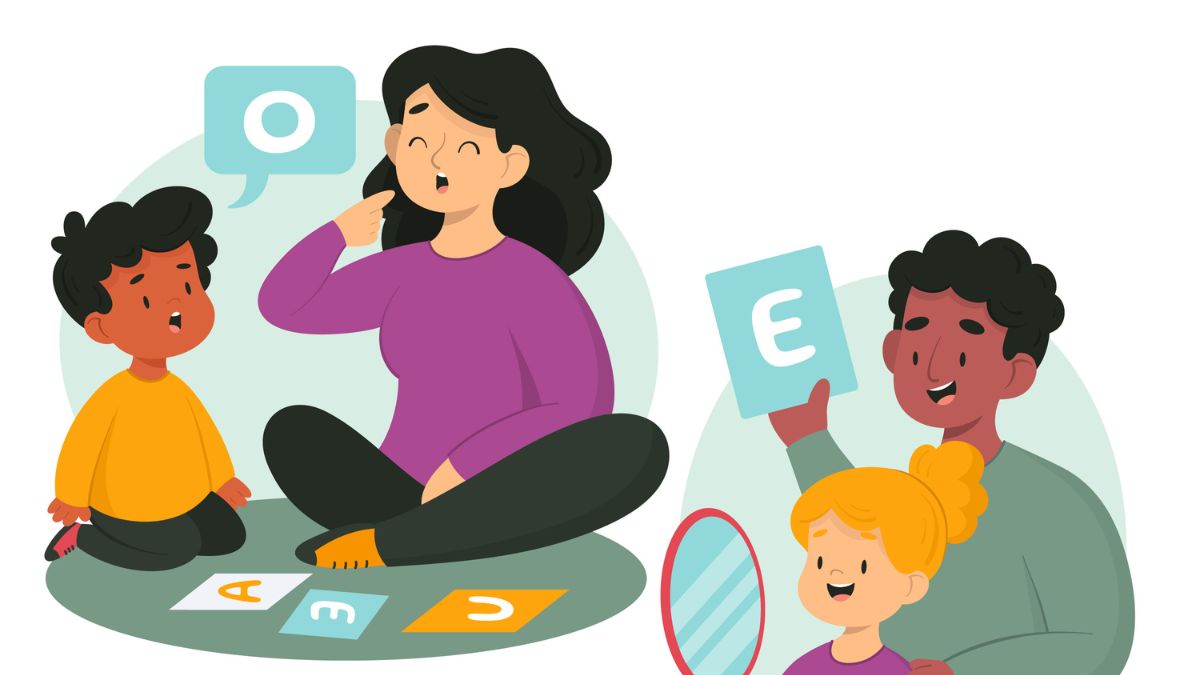Speech is a vital part of human communication. From early childhood to adulthood, the ability to express thoughts and emotions through language shapes our relationships, education, and careers. However, for many people, speech doesn’t come easily. Speech problems—ranging from stuttering and articulation issues to more complex language disorders—can significantly impact quality of life. But why do speech problems occur? In this blog, we’ll explore the key factors behind speech difficulties and shed light on the causes behind these often-misunderstood conditions.
1. Developmental Delays
One of the most common causes of speech problems in children is a delay in developmental milestones. Children typically begin to babble, form words, and construct sentences in a predictable sequence. When this progression is disrupted or delayed, speech problems can arise. Some children simply take longer to develop speech and catch up naturally, while others may require early intervention.
Conditions such as Developmental Language Disorder (DLD) can impact both understanding and use of language. Children with DLD may struggle with vocabulary, sentence structure, and expressing themselves clearly.
2. Neurological Disorders
Neurological factors play a significant role in many speech issues. The brain is responsible for planning, coordinating, and executing the muscle movements needed for speech. When these processes are disrupted, speech can be affected. Conditions such as:
- Cerebral palsy
- Autism spectrum disorder
- Aphasia (typically caused by stroke or brain injury)
- Apraxia of speech
…can all interfere with the brain’s ability to control speech. For example, apraxia is a motor speech disorder where the brain struggles to send the correct messages to the muscles used for speaking, even though the muscles themselves may function normally.
3. Hearing Impairments
Hearing is essential for learning how to speak. Children learn to speak by listening to the people around them. If they have difficulty hearing due to congenital hearing loss, ear infections, or auditory processing disorders, they may not hear sounds accurately, making it harder to reproduce them.
Even mild or temporary hearing issues can interfere with speech development. Early detection and treatment of hearing problems—such as through hearing aids or cochlear implants—can make a significant difference.
4. Physical Impairments
Speech involves precise coordination of the lips, tongue, teeth, and palate. Structural anomalies in these areas can hinder clear speech. Some common physical causes include:
- Cleft lip or cleft palate
- Tongue-tie (ankyloglossia)
- Dental problems
- Oral-motor dysfunction
For example, a child with a cleft palate may struggle to pronounce certain consonants clearly, leading to articulation challenges. In such cases, a combination of surgery, speech therapy, and dental or orthodontic care is often recommended.
5. Emotional and Psychological Factors
Speech problems aren’t always rooted in physical or neurological causes. Psychological issues can also contribute. Children and adults who experience anxiety, trauma, or extreme shyness may develop speech challenges. For example, selective mutism is an anxiety disorder where a child who can speak chooses not to in specific social situations.
Stuttering, in particular, often worsens under stress or pressure, even if it has a neurological origin. A supportive environment and therapy can help manage emotionally driven speech difficulties.
6. Genetic and Family History
Speech and language disorders can sometimes run in families. If a parent or sibling has experienced speech delays or language disorders, a child may be more likely to develop similar issues. Genetic conditions such as Down syndrome, Fragile X syndrome, and specific language impairment (SLI) also commonly include speech difficulties as part of their profile.
Understanding the genetic link helps professionals design more targeted interventions and manage expectations for progress.
7. Environmental and Social Influences
The environment in which a child grows up plays a key role in speech development. Children who aren’t exposed to regular, rich verbal interaction may experience delays. Factors such as:
- Lack of stimulation
- Neglect or abuse
- Exposure to multiple languages without support
- Parental speech habits
…can all influence how well a child learns to speak. However, bilingual households aren’t inherently problematic—when handled with consistency and support, they often enhance language skills over time.
Final Thoughts
Speech problems can have many causes—some simple, others more complex. Often, multiple factors interact to create communication challenges. Understanding these key causes helps caregivers, educators, and medical professionals recognize when to seek help and what kinds of support may be needed.
Early intervention, professional speech therapy, and a supportive environment can dramatically improve speech outcomes. Whether the issue is temporary or long-term, identifying the root cause is the first step in helping individuals find their voice.
Remember: If you suspect a speech problem in yourself or someone you care about, don’t wait. Consult a speech-language pathologist or healthcare provider. Early support can make all the difference.






